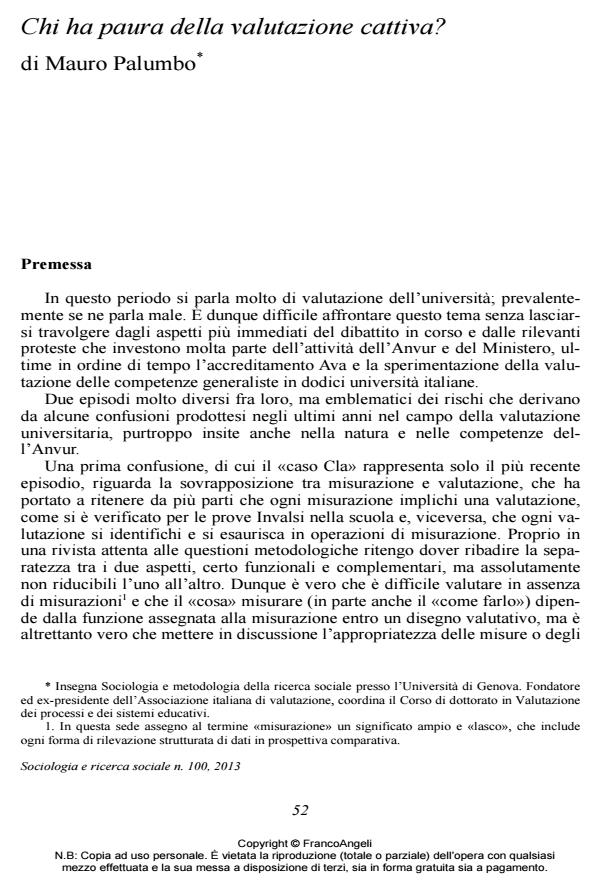Who is Afraid of a Negative Evaluation?
Journal title SOCIOLOGIA E RICERCA SOCIALE
Author/s Maura Palumbo
Publishing Year 2013 Issue 2013/100
Language Italian Pages 14 P. 52-65 File size 618 KB
DOI 10.3280/SR2013-100006
DOI is like a bar code for intellectual property: to have more infomation
click here
Below, you can see the article first page
If you want to buy this article in PDF format, you can do it, following the instructions to buy download credits

FrancoAngeli is member of Publishers International Linking Association, Inc (PILA), a not-for-profit association which run the CrossRef service enabling links to and from online scholarly content.
Evaluation of universities (like of any other structure or service) is neither negative nor positive. It depends on how it is performed and on the use it is intended for. In the case of Italy, it has been seen, often not incorrectly, as a way to reduce the margins of the universities’ autonomy, also because of the consequences attributed to it. It has not helped, either, that there has been overlapping (to not say confusion) in the goals of accreditation and premium next to those of accountability and learning. This essay proposes to bring the evaluation of universities in closer connection with the universities’ missions (didactic, research, local support) and with the different stakeholders in consideration. The aim is to not pursue a self-referencing logic that is often common to both opposers and supporters of the university evaluation. The essay concludes with a few proposals for a good and useful evaluation, which, given the times, have a good possibility of being ignored or disregarded.
- La valutazione senza governo Mauro Palumbo, Carlo Pennisi, in RIV Rassegna Italiana di Valutazione 59/2015 pp.7
DOI: 10.3280/RIV2014-059002 - Criteri corretti e condivisi per una valutazione buona e utile della ricerca Mauro Palumbo, Carlo Pennisi, in SOCIOLOGIA E POLITICHE SOCIALI 2/2015 pp.73
DOI: 10.3280/SP2015-002004
Maura Palumbo, Chi ha paura della valutazione cattiva? in "SOCIOLOGIA E RICERCA SOCIALE " 100/2013, pp 52-65, DOI: 10.3280/SR2013-100006